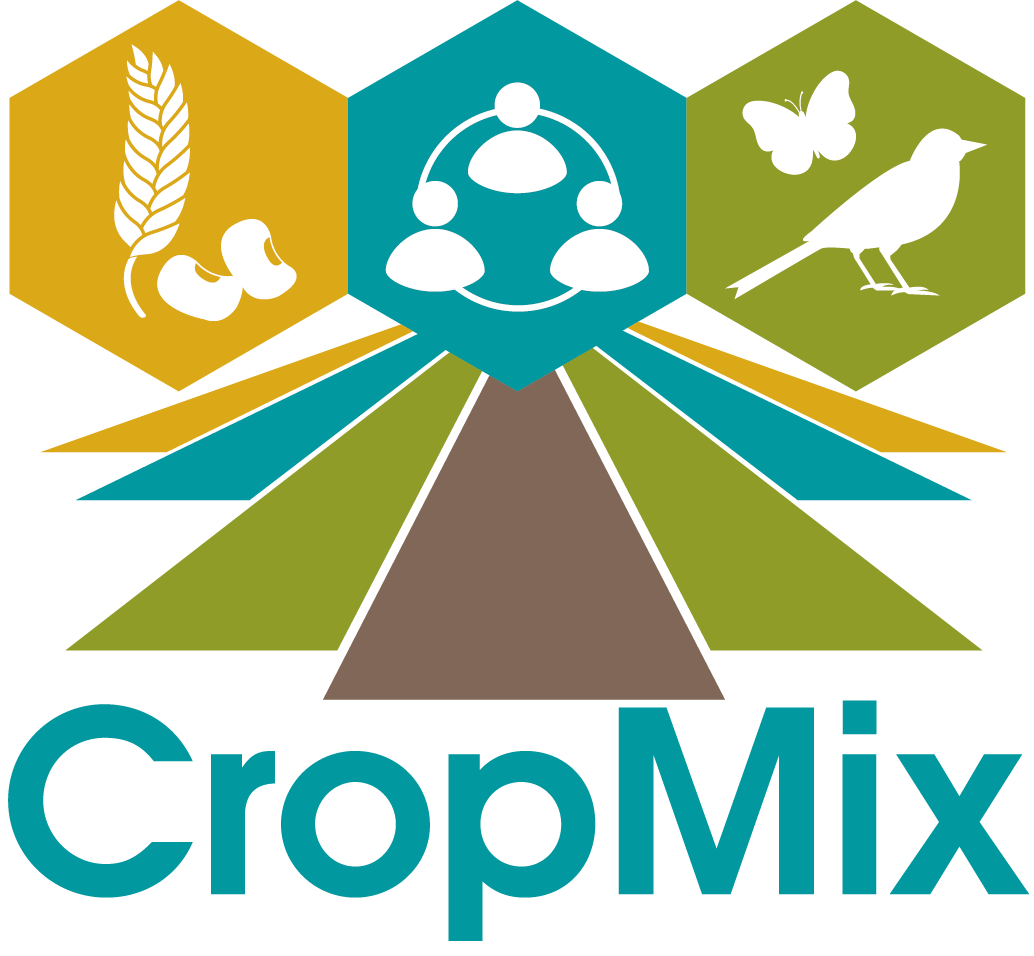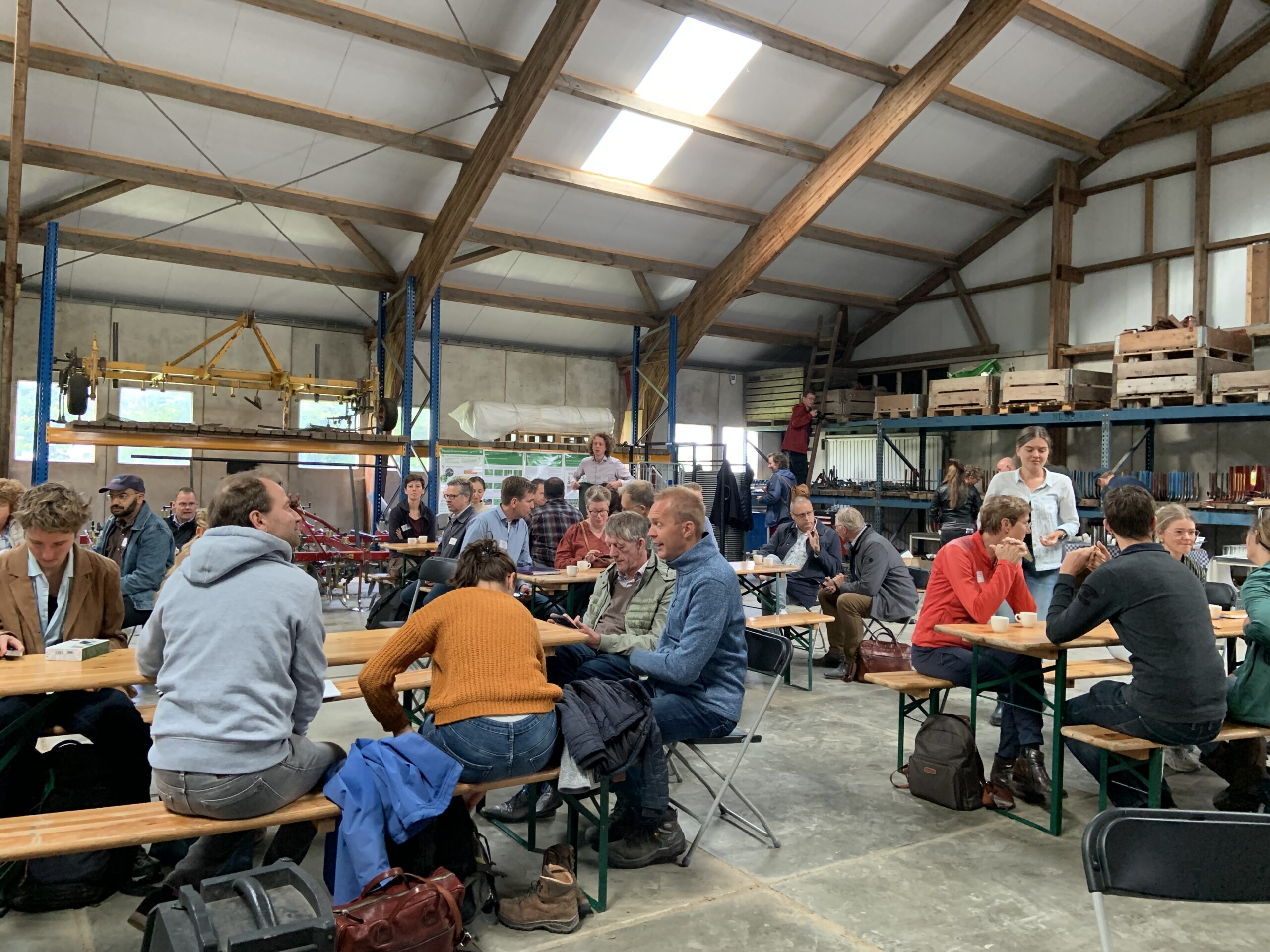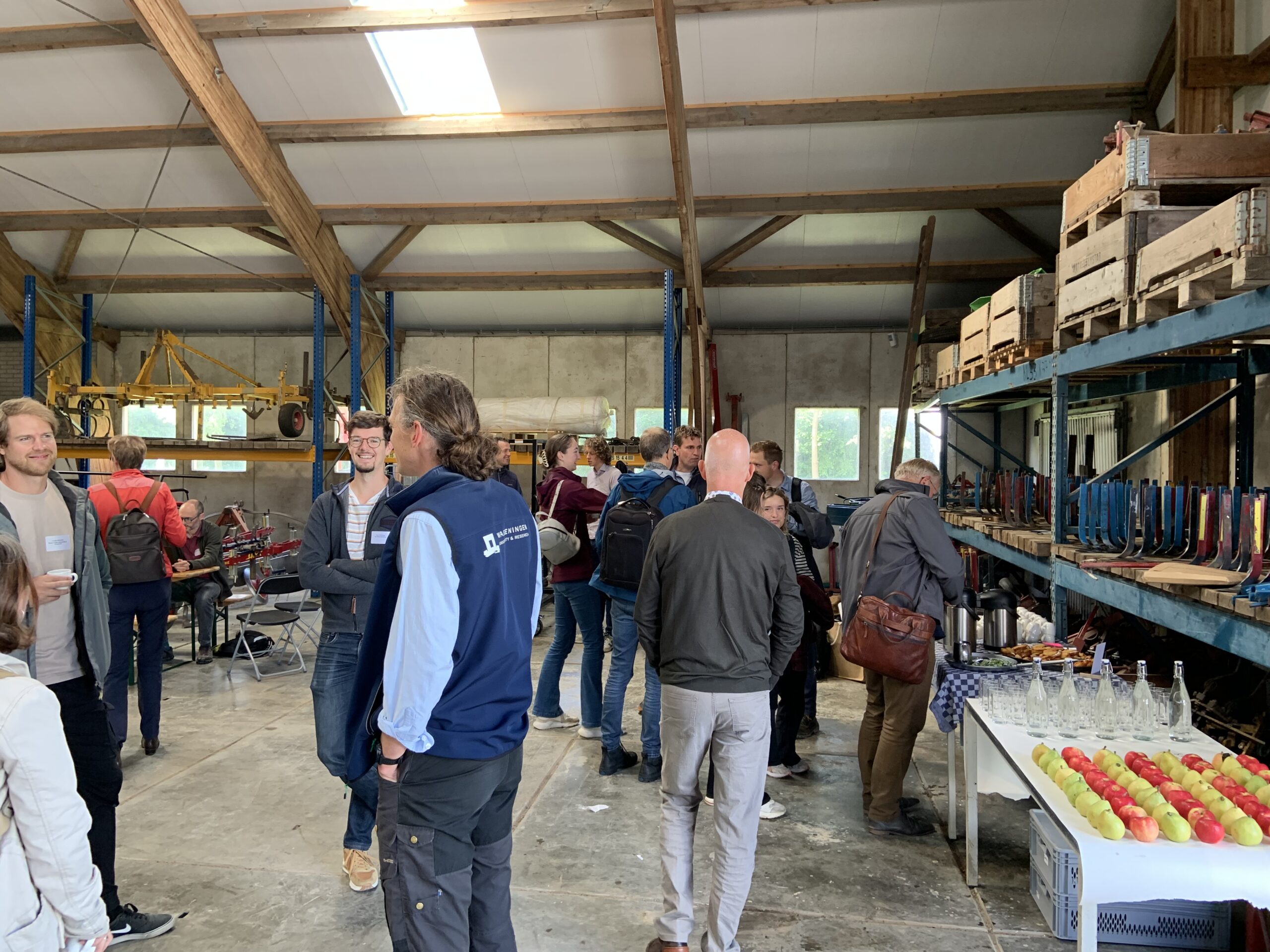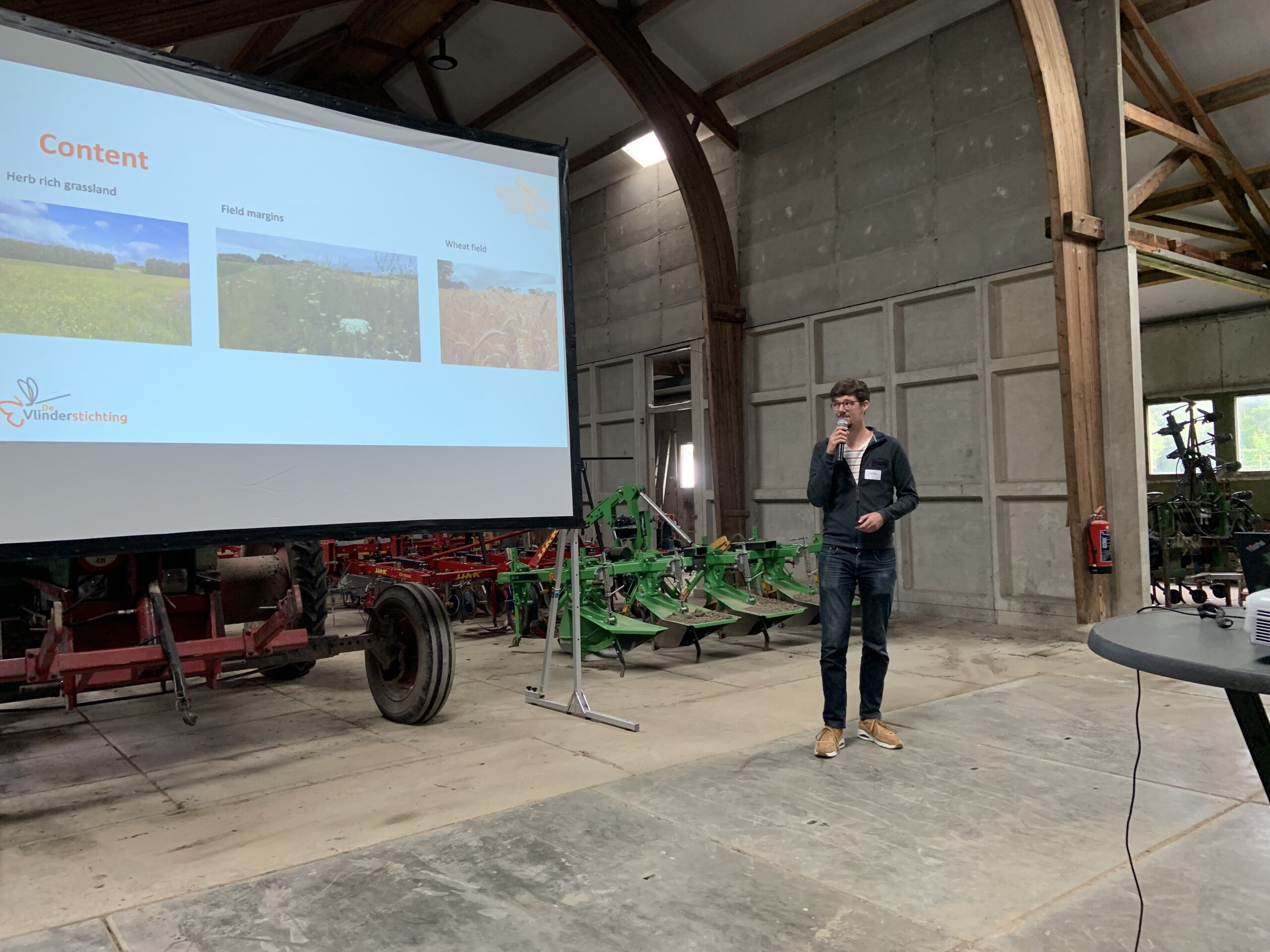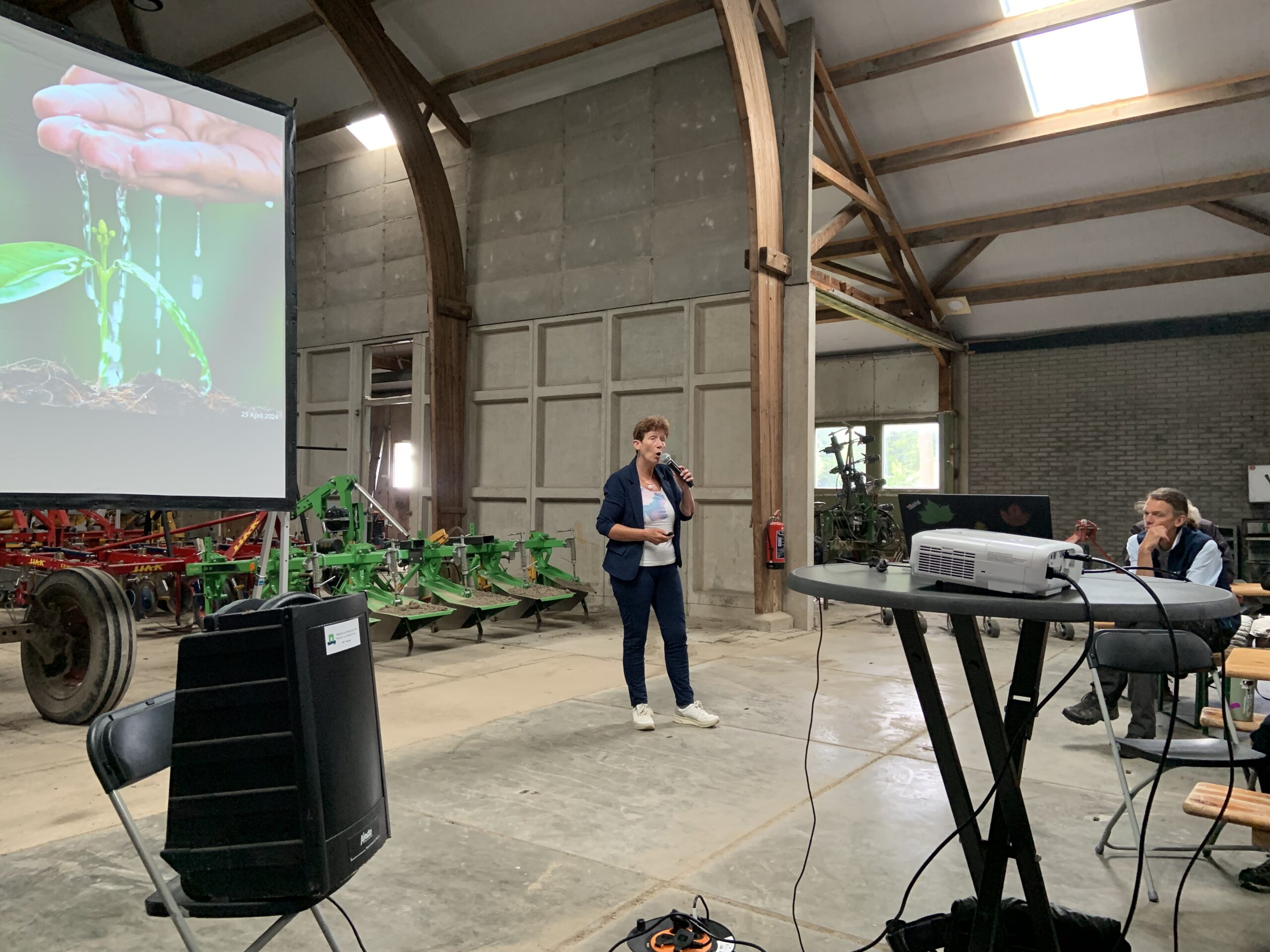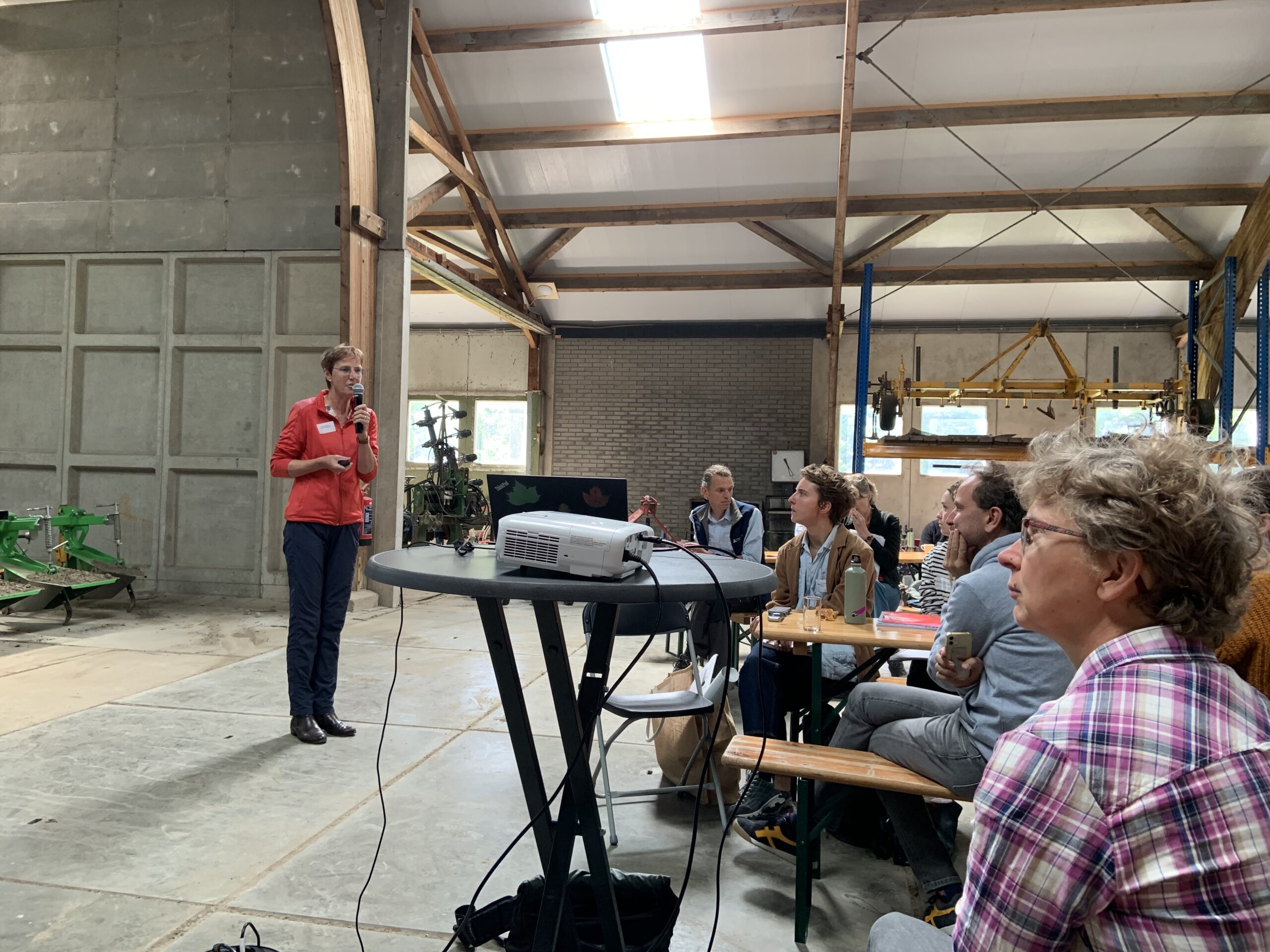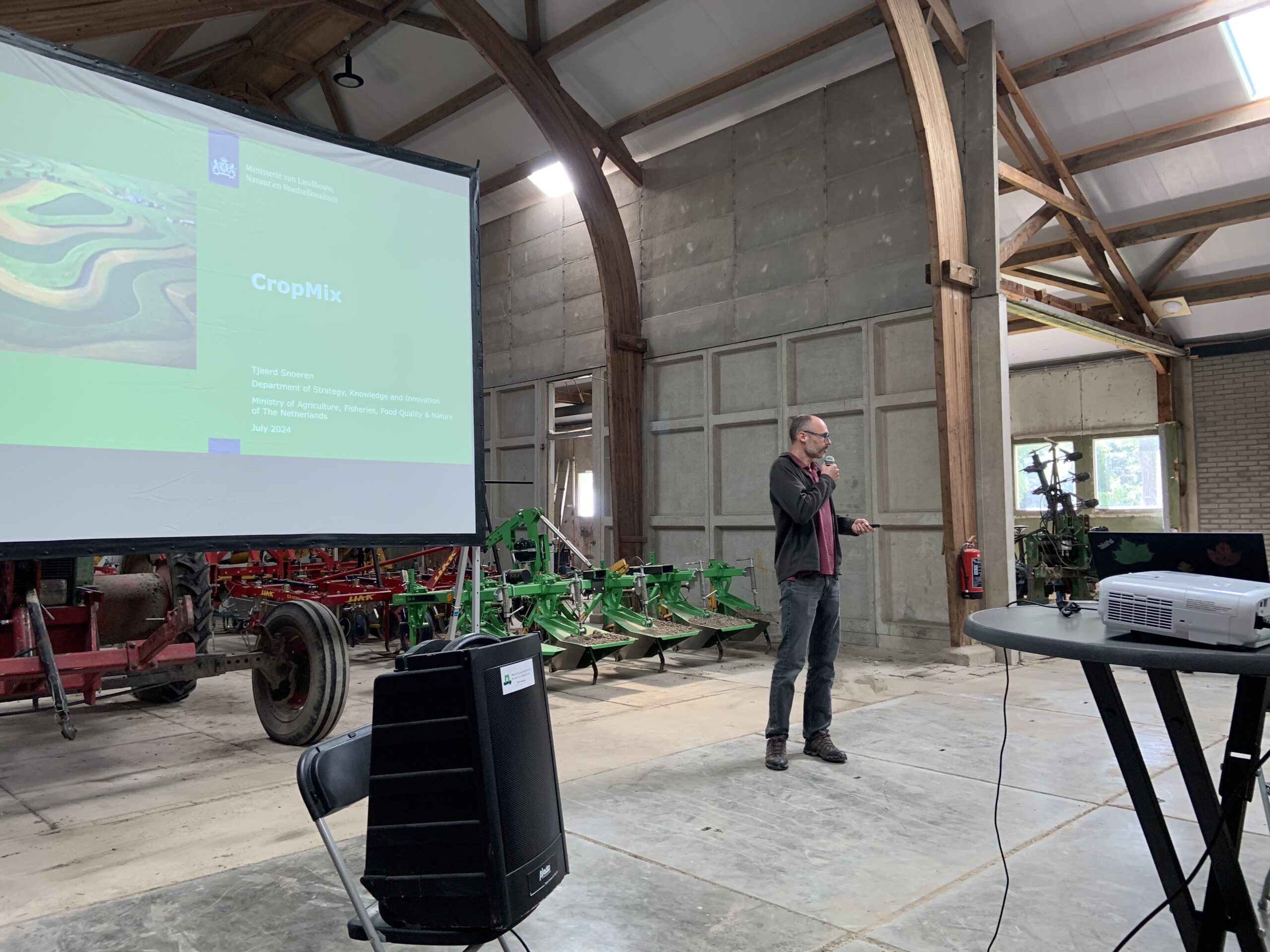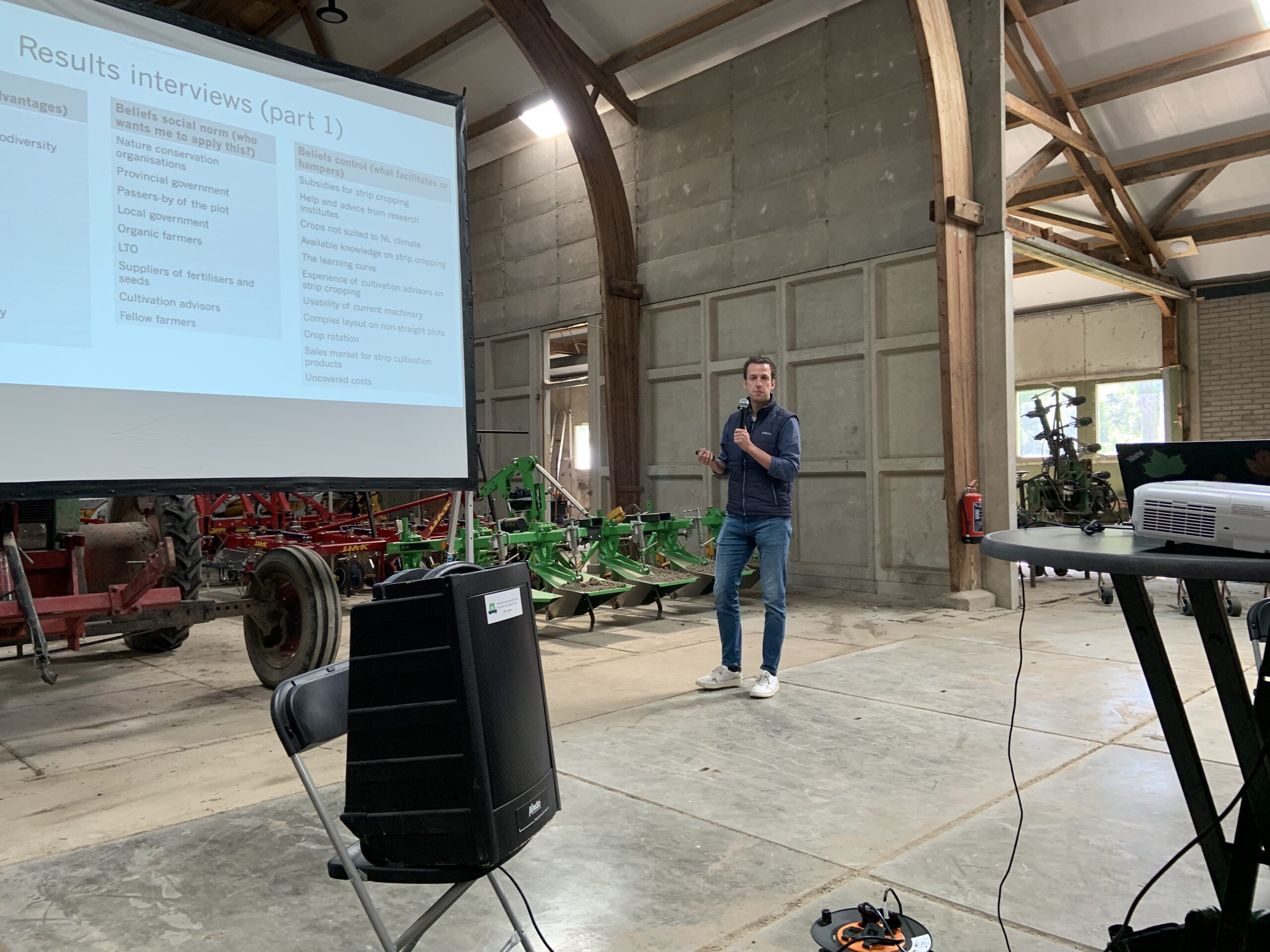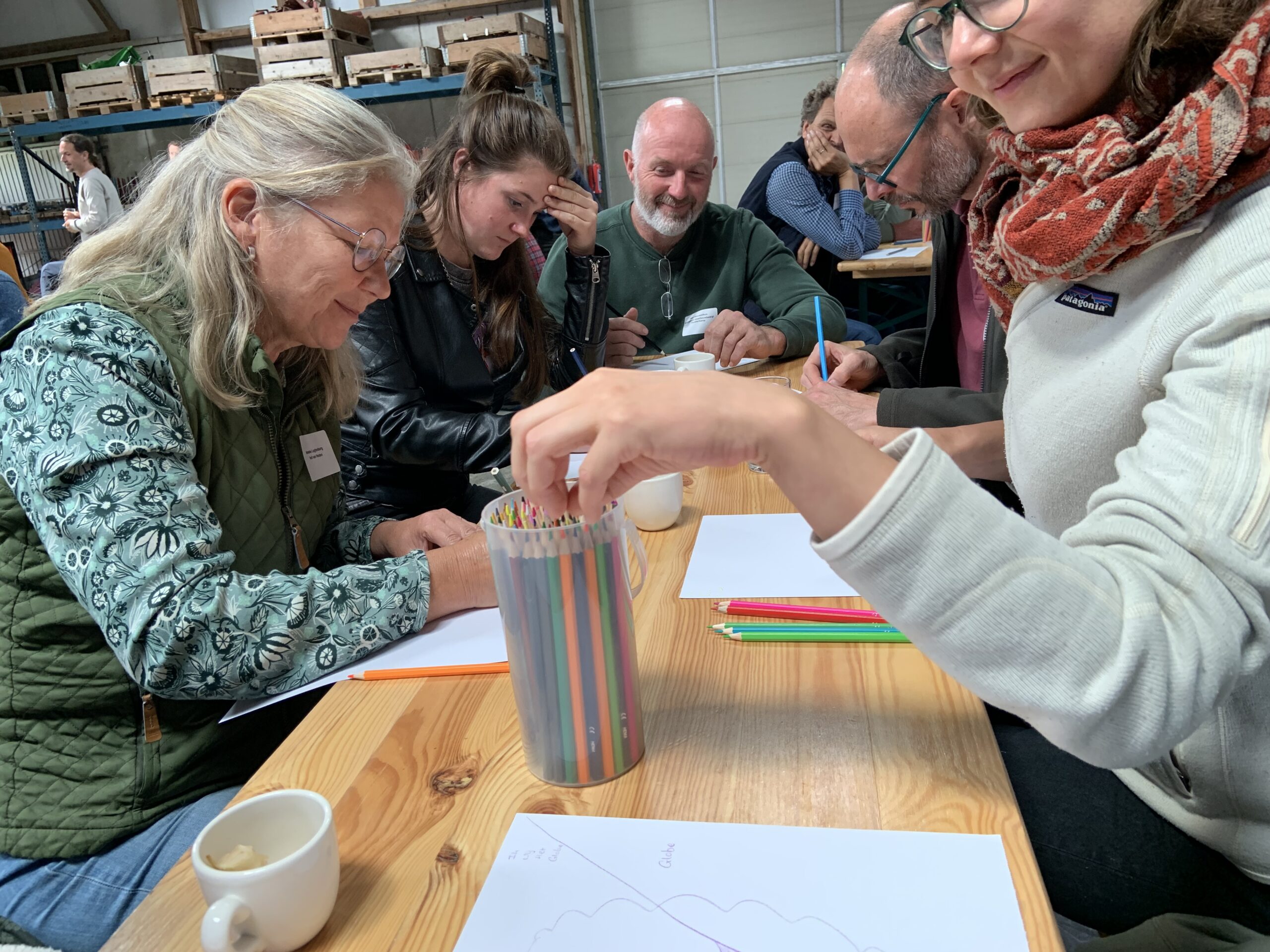Last week, our consortium travelled to Lelystad for a consortium meeting as well as a visit to the BioVelddag. This time there was no storm and even some sunshine, which made it pleasant to be in the barn.
The meeting was all about partners speaking, to show that the consortium is made up of different desires and interests.
Koen Verhoogt of the De Vlinderstichting highlighted their research to increase biodiversity in and around arable fields, particularly targeting insects and butterflies. Koen mentioned three of their telling experiments: a study on herb-rich grassland, an experiment with flower borders and an experiment with a lower sowing density of spring wheat in which yields remained almost the same but the ground beetle population increased by 400%. A promising result, but with the audience also immediately noting that 400% from little is still (too) little.
Helma Verberkt was the second speaker. Artemis is the interest group for producers and distributors of biological control agents and pollinators, biological plant protection products and and biostimulants. Helma mentioned the opportunities she sees when it comes to biocontrol in the open field. Biocontrol has been taken for granted in horticulture for much longer.
Tjeerd Snoeren from Ministry of Agriculture, Fisheries, Food Security and Nature told about mission-driven government knowledge and innovation agenda focused on agriculture, water and food, in which public and private parties work together to solve societal challenges. In doing so, they use, for example, the National Growth Fund.
Also from the policy side, José van Gerven of Gelderland showed us what the province is doing to promote crop diversity. In Gelderland, they are particularly committed to agroforestry. Gelderland is not an arable province par excellence, but livestock and poultry farming can also make use of the Agroforestry Network and subsidy schemes. The aim is to land as much money as possible on the farms themselves.
After the partners, the floor was given to business economist Jaap Sok to present the results of Brent Meier's master's research. He examined intentions and beliefs about strip farming from a small group of farmers. The intention to apply strip cropping in the next two years turned out to be low among these farmers. Practical objections, such as more time-consuming tillage and lack of suitable machinery, seem to play a role here in particular. On the other hand, farmers also feel that society demands sustainability. They think, for instance, that nature organisations and (local) governments encourage them to use strip cropping, while they expect fellow farmers not to encourage it. They do expect that strip cropping can also bring more job satisfaction.
We ended the morning with a creative session led by PhD candidate Inez Dekker and master's student Sterre Hubers. Participants made drawings of the landscape we proverbially find ourselves in, based on Ruth Cohn's Theme-centred Interaction (TGI) model. We reflected on four factors from the model: 'I-we- it-globe'. I is one's own purpose, values and role. WE are the other attendees and their values. IT is the task or purpose and GLOBE is the context in which all this is situated. By literally drawing these four elements and putting the drawings together, it became visible how values and goals match and, on the contrary, differ between the consortium partners. It was an interesting way to start the discussion and continue it over lunch.
The next consortium meeting is in Amsterdam on the 12th of November.
